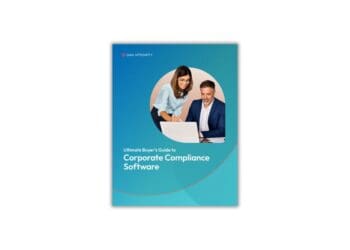Takeaways from Robare Group Case
In the In re The Robare Group, Ltd., the SEC tackles the “reliance on compliance consultant” defense. While the decision leaves some issues open, it does suggest that such a defense would need at a minimum clear evidence that the advice was sought and relied on, among other considerations.
As a legal and compliance consultant, I could not help but take an interest in the SEC’s recent decision in In re The Robare Group, Ltd. This enforcement proceeding against The Robare Group, Ltd. (TRG), a registered investment adviser, leaves certain issues open that I will not cover (finding of fraud without scienter, what constitutes adequate ADV disclosure, etc.). In this article, I will focus on the issue near and dear to me as a consultant – reliance on consultant defense.
Below is a summary of this important decision and some key takeaways.
Summary of the Case
The SEC’s Division of Enforcement’s case against TRG alleged that it failed to adequately disclose a compensation arrangement with Fidelity, its custodian, and Triad Advisers, a registered broker-dealer. TRG and two of its principals were sued as a result. Here is the history of the decisions rendered in this matter.
2015 – ALJ Decision
SEC Administrative Law Judge (ALJ) dismissed the SEC’s case because of:
- the SEC’s failure to demonstrate that TRG had acted negligently or with scienter;
- the testimony of a compliance expert; and
- its conclusion that “employing a compliance professional and following his or her advice” met industry standards of due care.
2016 – SEC Decision
The Division of Enforcement appealed the ALJ decision, and the SEC reversed the decision of the ALJ and found that:
- TRG and its principals were negligent in failing to fully and fairly disclose the conflict of interest that arose from a compensation-sharing arrangement.
- TRG’s updated disclosure was inadequate because it did not disclose the existence of the arrangement or provide any details about the conflict it presented.
- TRG did not establish that it specifically sought or received consultants’ advice concerning how to disclose the arrangement.
- The SEC rejected TRG’s claim that it had exercised reasonable care in relying on compliance consultants, finding no case for such a defense.
- The SEC fined TRG and its principals $50,000 and imposed a cease-and-desist order.
Key Takeaways
Should firms feel that they cannot rely on consultants to provide advice following the TRG decision? While the decision leaves some questions open, I don’t believe the SEC’s intent was to discourage reliance on consultants. Rather, the decision makes it clear that reliance on compliance consultants does not carry the same weight as reliance on legal counsel (at least there is no precedent out there to rely on). And if you want to use the latter defense, make sure that you can demonstrate that:
- complete disclosure was made to counsel,
- advice was sought and received about the relevant conduct and
- reliance on the advice was in good faith.
Additional lessons learned from this decision when engaging a consultant:
- Make sure to document all disclosures made to the consultant.
- Retain all communications with the consultant.
- Keep records of the firm’s actions made because of the consultant’s advice.
- Monitor all revenue and compensation sources to identify and disclose any potential or actual conflicts.
- Disclose any compensation that could present a conflict of interest, including:
- identifying all sources of compensation the firm receives, and
- determining whether that compensation might provide an incentive to act in a way that enriches the firm at the expense of the client.
- Do not indicate that an adviser “may” receive compensation when in fact it DOES receive compensation; this won’t cut it – just disclose it (use “will”).
Make sure that if you are relying on an expert, you can clearly and adequately demonstrate that the company:- made complete disclosure to the expert;
- sought, received and acted on the expert’s advice; and
- provided the expert with complete and accurate information relevant to the matter or issue.
Sources
In the Matter of The Robare Group Initial Decision (June 4, 2015)
The Robare Group, Ltd., et al. (Opinion of the Commission) (November 7, 2016)



 Patty P. Tehrani is an experienced compliance counsel and advisor and the founder of the Policy Patty Toolkit (
Patty P. Tehrani is an experienced compliance counsel and advisor and the founder of the Policy Patty Toolkit (










